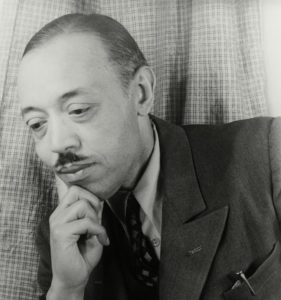
Composer Profile: William Grant Still, ‘Dean of Afro-American Composers’
By David Salazar(Credit: Carl Van Vechten)
Born on May 11, 1895, William Grant Still would go on to become one of the most iconic African-American composers of all time.
Still was born in Woodville Mississippi. His father William Grant Still Sr. was a teacher, partner in a grocery store, and performed as a local bandleader; unfortunately, he would pass away when his son was but three months old.
His mother Carrie Lena Fambro was a teacher of high school English and would remarry to Charles B. Shepperson, a champion of the young Still’s musical interests. Still would start taking violin lessons at age 15 and would go on to teach himself to play the clarinet, oboe, saxophone, double bass, cello, and viola.
While he went on to pursue a Bachelor of Science degree at Wilberforce University in Ohio, he would still engage with musical activities and would leave the university without graduating.
He then earned several scholarships to Oberlin Conservatory of Music where he would commence his music career in earnest.
He would perform and record regularly throughout the 1920 and 1930s, arranging several pieces of music.
His first major orchestra composition, his Symphony No. 1 “Afro-American” came in 1931 and would become the first score by an African American performed by a major orchestra (it was conducted by noted composer Howard Hanson, who led the Rochester Philharmonic in the performance). This was the first of many times that Still would make history.
In 1936, he became the first African American to conduct a major American Orchestra; he led the Los Angeles Philharmonic in a performance of his own works.
In 1949, his opera “Troubled Island” appeared at the New York City; it was the first opera by an American to be performed by the company. Moreover, “Troubled Island” was the first opera by an African American composer to be performed by a major opera company in the U.S.
He would then become the first African American to conduct a major orchestra in the deep South when he led a concert of the New Orleans Philharmonic in 1955.
Finally, his 1981 opera “A Bayou Legend” was the first by an African American composer to be showcased on national television.
Despite his meteoric rise, Still’s career was not without challenges due to racism. Still would arrange music for several movies, though he would leave an assignment on the 1943 film “Stormy Weather” due to 20th Century Fox’s mistreatment of people of color.
He faced similar segregation in 1939. He composed the “Song of a City” for the World’s Fair in New York City but was unable to attend except on “Negro Day” without police protection.
He died on Dec. 3, 1978. He was often be referred to as the “Dean of Afro-American Composers.”
Signature Works
On the operatic front, Still composed eight operas. His most renowned include “Troubled Island” and “A Bayou Legend,” both historic in their own rights.
“Troubled Island” emphasizes the corruption of Jean Jacques Dessalines’ leadership in the Haitian Revolution.
“A Bayou Legend” is a revenge story set in a Creole village in the Mississippi Delta that focuses on themes of love and spirituality.
Watch and Listen
Here are recordings of “A Bayou Legend” and “Troubled Island.”
And here is an interview with the composer regarding the premiere of “Troubled Island.”
Categories
Opera Wiki

